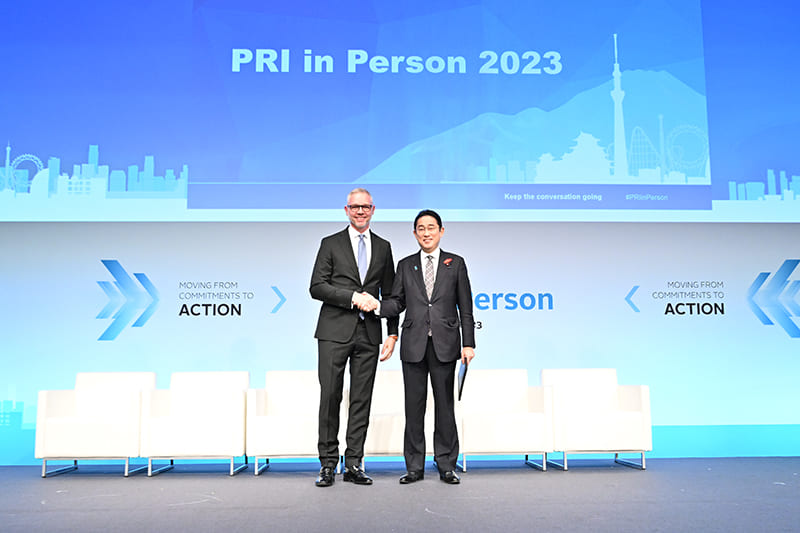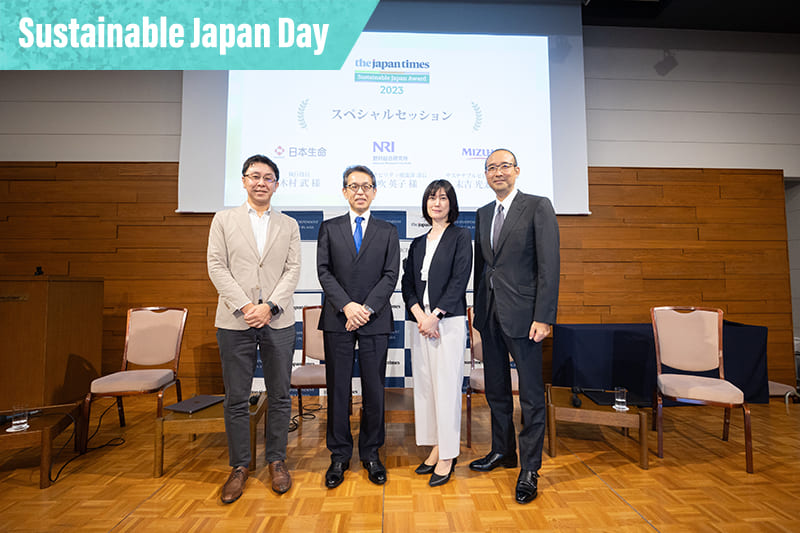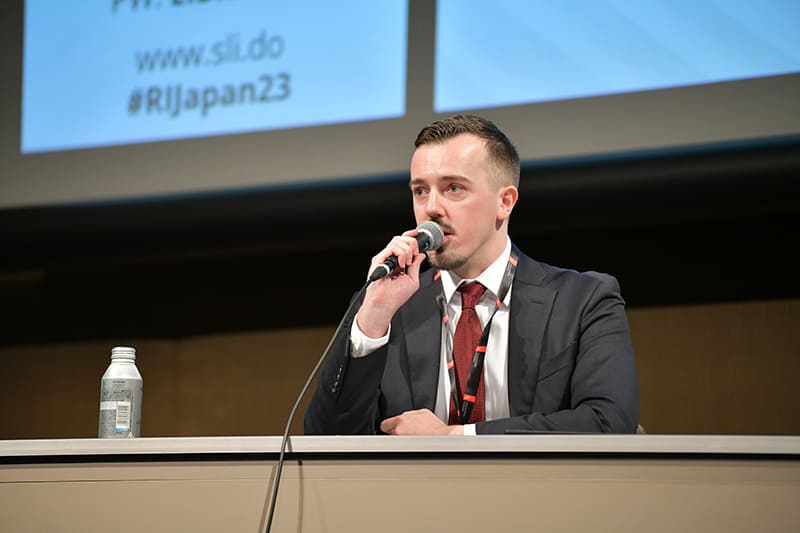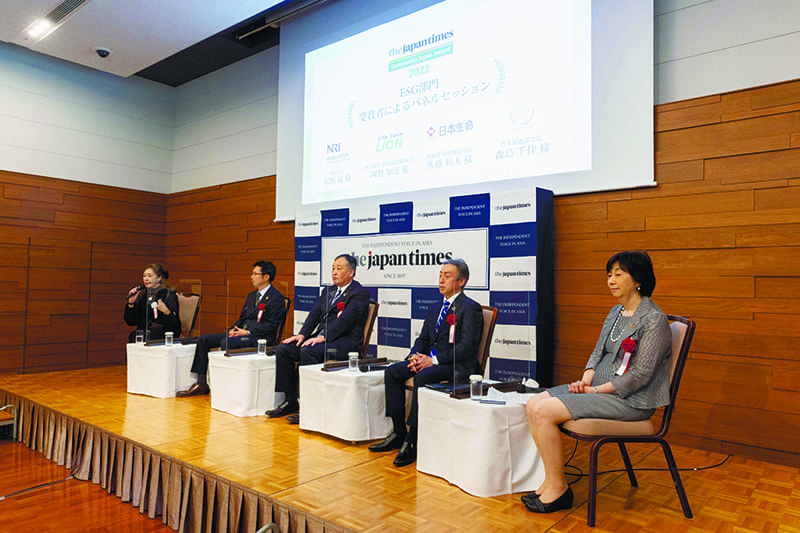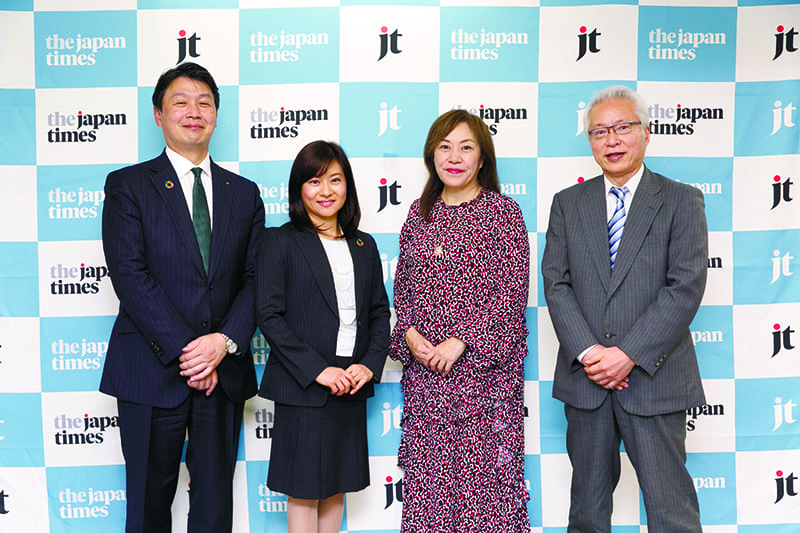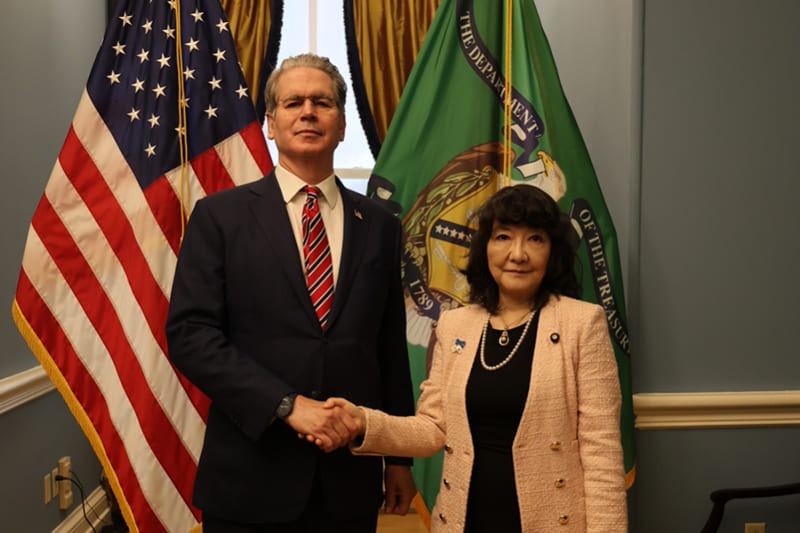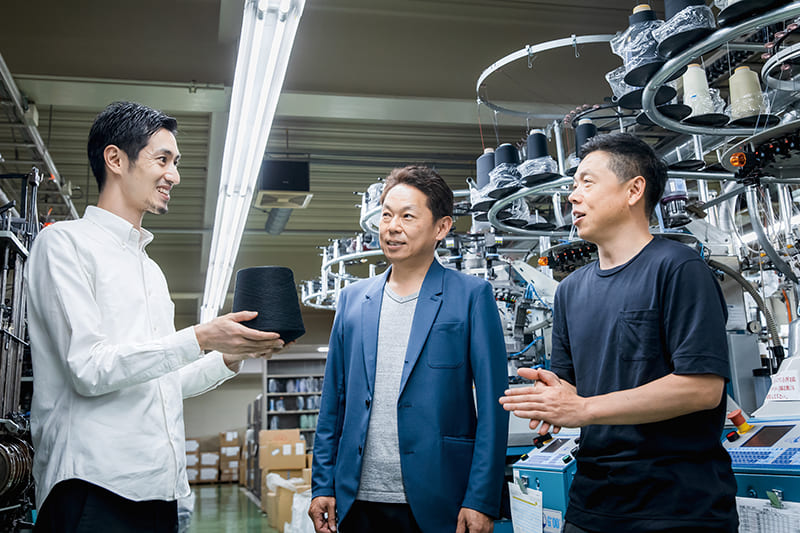October 10, 2023
PRI webinar focuses on seeing interconnections of ESG issues
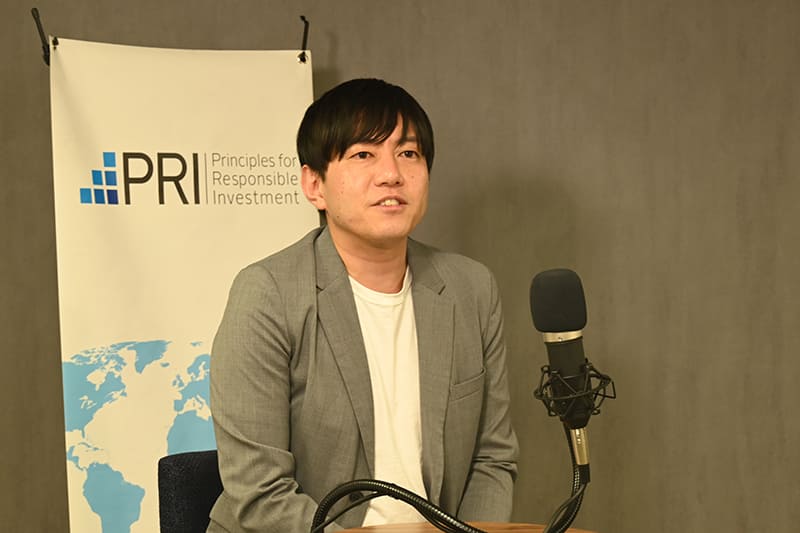
On Sept. 1, Principles for Responsible Investment (PRI) hosted a webinar centered on investment and the nexus of climate change, biodiversity and human rights. The session featured Kenji Fuma, founder and CEO of the sustainability consultant Neural Inc. Additionally, a panel discussion included Fuma; Minoru Matsubara, executive officer and general manager of the Responsible Investment Division at Resona Asset Management; and Michiyo Morisawa, Japan head of PRI. The panel discussion was moderated by Fuyumi Takeuchi, senior ESG specialist as part of the Responsible Investment Department at Nomura Asset Management. The participants engaged in an in-depth conversation about the interconnectedness of sustainability issues.
Individual ESG fields such as climate change, biodiversity and human rights encompass a vast array of challenges. Fuma underscored that rather than addressing each issue in isolation, it is crucial to recognize their intertwined nature. By advocating for a holistic approach, Fuma emphasized the need to see the bigger picture and consider how addressing one issue can have ripple effects on others.
Fuma pointed out that existing models of economic development and increased food production can lead to the destruction of the natural environment, as well as water and sanitation problems. Measures to combat climate change can inadvertently harm biodiversity. Thus, when formulating solutions for climate change, it is vital to account for their effects on biodiversity, and vice versa. In essence, a holistic, bird’s-eye view is essential for navigating the complexities of ESG concerns effectively.
During the panel discussion, the interconnected nature of sustainability issues was a central topic. Matsubara pointed out that the days of addressing individual issues are behind us. Moving forward, investment managers need to define the ideal society of the future with “purpose,” organize the relationships among issues, and act accordingly. He further underscored the significance of intentionality for striving toward an ideal society. Matsubara believes that having a clear intent is paramount for investors. He expressed his view that such intentionality is intrinsically tied to the interconnected challenges and foresees it becoming a central theme in responsible investment discussions moving forward.
Matsubara also remarked: “While companies recognize the importance of these issues, collaboration deepens understanding. Collaborative engagement is crucial, helping us highlight the nexus of the challenges we face.”
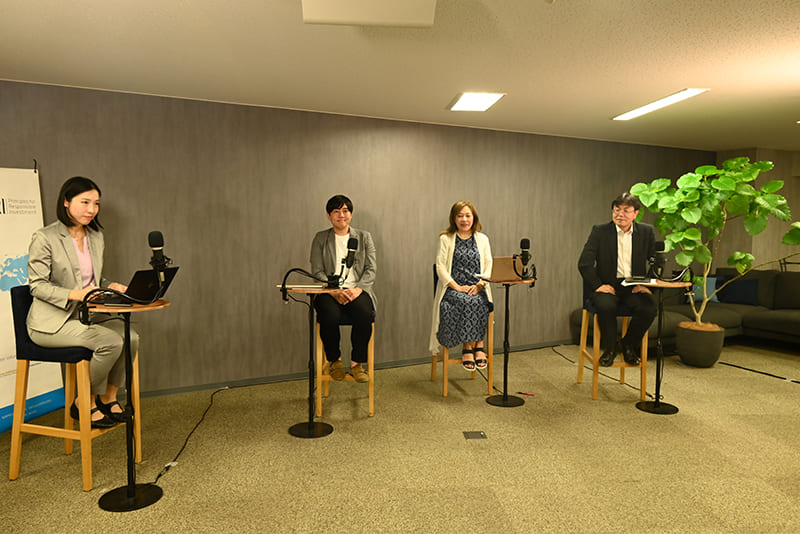
Morisawa from PRI also emphasized the interconnected nature of ESG issues, advocating against viewing them as standalone challenges. She delved into the sustainable finance taxonomy set up by the European Commission in 2020. This classification system, formulated after extensive research and suggestions from 35 experts, encompasses six categories. Central to this EU taxonomy is the nexus principle: Even if one category benefits, it should not adversely impact the others. Morisawa noted that the EU taxonomy is being utilized around the world and that the need for such a taxonomy is beginning to be recognized in Japan as well.
“Every day, we confront challenges such as sweltering heat, the onset of typhoons, torrential downpours, river floods and unyielding wildfires in arid regions. Some places even risk vanishing due to rising sea levels. There’s so much to consider. Yet, by understanding the interconnection of these issues and addressing each clearly, we can chart our future course,” Morisawa stated.
The panel delved into the concept of “just transitions,” emphasizing the importance of transitioning to a sustainable society equitably for all stakeholders: customers, employees, supply chains and local communities. This fair approach is crucial when addressing environmental challenges like climate change, biodiversity and human rights. Morisawa highlighted the closure of coal mines in Europe and the shift to electric vehicles in Japan’s auto industry, stressing that such transitions must ensure that no one is left behind.
Fuma also emphasized that in formulating a transition plan, it is vital to understand the nexus among all issues in ESG and ensure that the transition is just and inclusive for all these areas.
In wrapping up the session, Morisawa highlighted the deep-rooted Japanese tradition of valuing and revering nature and human relationships. She expressed a strong interest in fostering discussions rooted in these cultural values and collaborating with stakeholders to drive quality investments.


